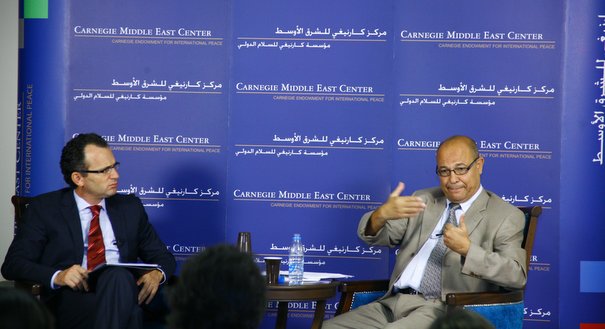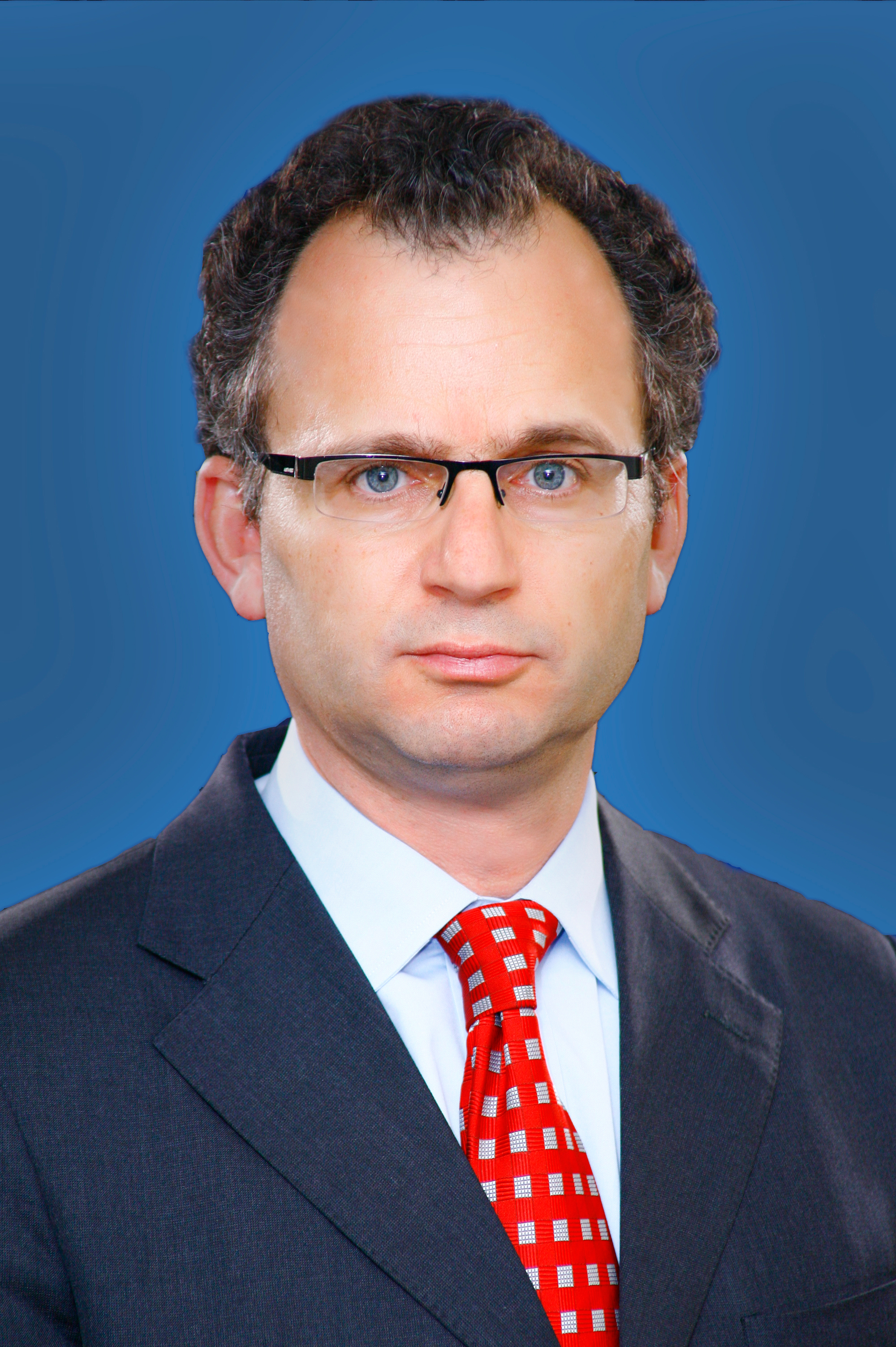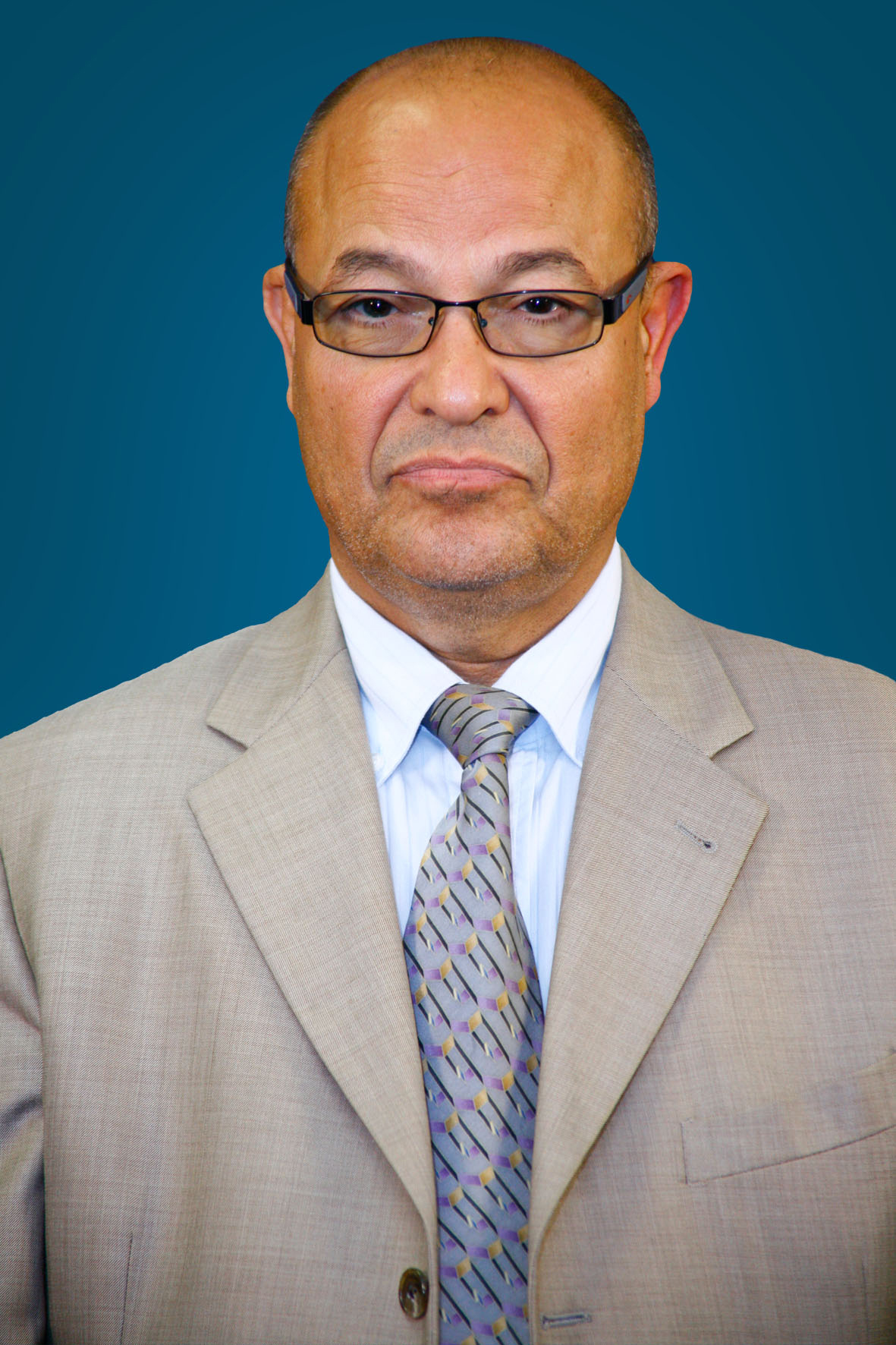{
"authors": [
"Paul Salem",
"Ahmed Jehani"
],
"type": "event",
"centerAffiliationAll": "",
"centers": [
"Carnegie Endowment for International Peace",
"Malcolm H. Kerr Carnegie Middle East Center"
],
"collections": [],
"englishNewsletterAll": "",
"nonEnglishNewsletterAll": "",
"primaryCenter": "Carnegie Endowment for International Peace",
"programAffiliation": "",
"programs": [],
"projects": [],
"regions": [
"Maghreb"
],
"topics": [
"Political Reform",
"Security"
]
}
The Aftermath of Libya’s First Elections
Tue, July 10th, 2012
Beirut
On July 7, Libyans voted in the country’s first parliamentary elections in over forty years, selecting 200 members for the General National Congress (GNC) to replace the National Transitional Council which has been ruling since the overthrow of Qaddafi’s regime last fall. To examine the significance of this election and the challenges confronting Libya and the newly-elected GNC, the Carnegie Middle East Center hosted a discussion with Dr. Ahmed Jehani, head of the Libyan Development Policy Center and former chairman of Libya’s transitional Stabilization Team. Carnegie’s Paul Salem moderated the event.
Pre-election shambles
In the months between Qaddafi’s fall and the July elections, Libya was a lawless country, Jehani argued. The transitional government was largely ineffective, delivery systems for public goods were broken down, and armed militia groups exerted violent strength without fear of punishment. Although a basic level of societal cohesiveness prevented Libya from resembling other war-torn African neighbours, Jehani explained that the general chaos provided an opportunity for some to take revenge and settle scores.
The Election
National elections offered the only way to escape a situation where Libya was increasingly showing symptoms of a failed state, Jehani maintained. Given the longevity of the Qaddafi regime, he compared Libyans reactions to the elections as a child’s response to a new toy–full of curiosity. Between Jbril’s liberal coalition, the Muslim Brotherhood, and Al Watan, a ground swell of previously unrealized political sentiment arose within the population, he added.
Challenges
Having successfully held and tallied results from the parliamentary elections and earning the acclaim of several international governing bodies, Jehani emphasized that many serious challenges lie ahead for the newly-announced GNC.
- Uniting the Country: The physical landscape of Libya, coupled with the controlling grip of the Qaddafi regime, has left the country extremely polarised, Jehani explained. New parliamentary officials will face the difficult task of bridging the divides between geographic and tribal boundaries both within the GNC itself and in the country at large. Jehani expressed optimism that a large block of Jbril-aligned liberals could encourage cooperation and discussion.
- Security Reform: With the arrival of the new parliament, it is critical to address the standing of the armed militia groups who have been patrolling Libya since Qaddafi’s fall, Jehani emphasized. Under Qaddafi, the army and militia groups were maintained primarily to protect the regime, which means that the entire security sector infrastructure must now be reconsidered. However, Jehani added that this project will take a long time and likely can only be achieved after political reforms have been completed and accepted.
- Economic Reform: Over 70 percent of state expenditure comes from oil revenue, Jehani explained, and some researchers estimate this figure will rise to almost 100 percent by 2015 if appropriate action is not taken. This dependency is doubly worrisome because economists are predicting that by 2020 Libya may shift from being a net exporter to a net importer of oil, due to depleting easily accessible resources. To further complicate the economic situation, the state currently employs more people that it can compensate. Jehani suggested that the new parliament must move away from the rentier model of the past and use its resources for infrastructure development and private sector investment in sustainable businesses.
- External Influence: Libya continues to watch Egypt closely, Jehani explained, believing that positive developments in Egypt will likely be mirrored by positive developments in Libya. He also predicted tensions between Libya and the United Nations in the coming months over ICC jurisdiction and international funding, expressing his hope that each side would practice understanding and cooperation.
Carnegie does not take institutional positions on public policy issues; the views represented herein are those of the author(s) and do not necessarily reflect the views of Carnegie, its staff, or its trustees.
Event Speakers
Paul Salem is a senior fellow at the Middle East Institute.

